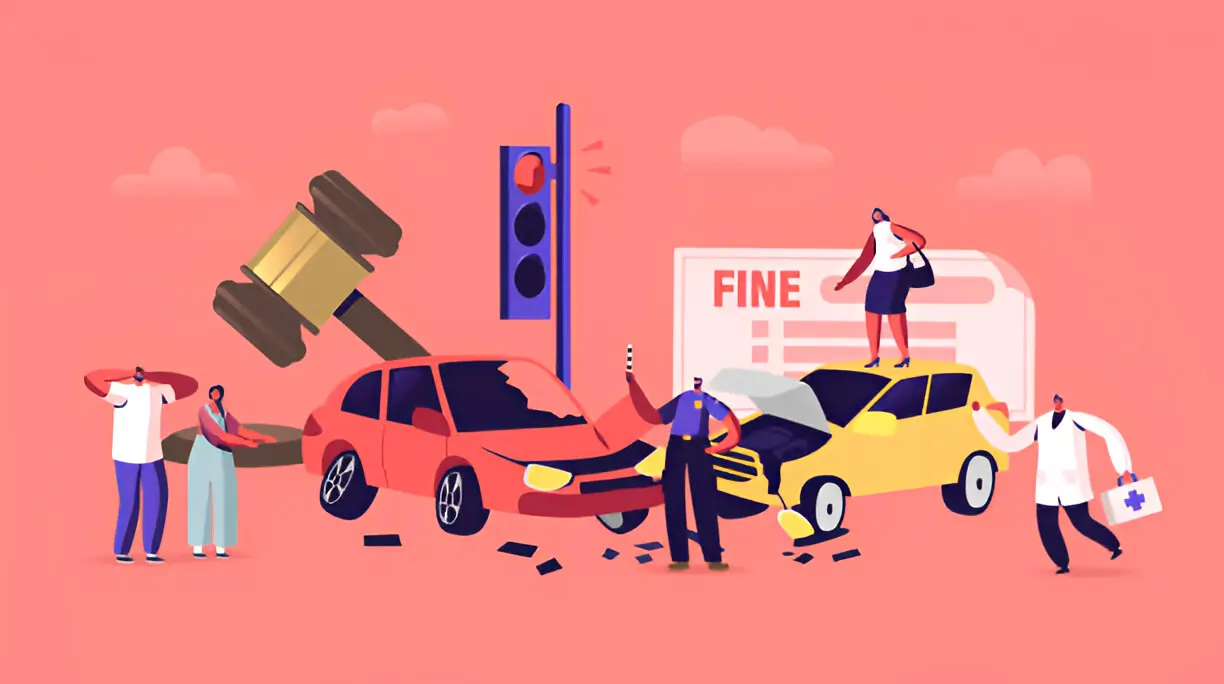Car accidents can happen in a flash. One minute you’re driving home or heading to work, and the next, you’re dealing with damage, injuries, and stress. In those first moments after a crash, it’s easy to feel confused.
But what you do right after an accident is very important. It can make a big difference in keeping your rights safe and making sure you get the help and money you deserve later.
In this guide, you’ll go over five smart and simple steps you can take to protect yourself after a car accident. These steps can save you a lot of trouble in the future.
1. Check for Injuries and Get Medical Help
Your safety and the safety of everyone with you should always come first. Right after a car accident, check yourself and any passengers for injuries. If anyone is hurt, call 911 or ask for help right away. Even if you think you feel fine, it’s still very important to see a doctor as soon as possible.
Corey Schafer, SEO Specialist at Florin|Roebig says, “Some injuries, like whiplash, head injuries, or internal bleeding, don’t show up right away. You might feel okay at first but start to hurt later. Seeing a doctor early helps catch these problems before they get worse.”
Getting checked also helps your insurance claim. When you go to the doctor right after the accident, it creates a medical record that clearly shows your injuries were caused by the crash. This record makes it harder for insurance companies to argue or deny your claim.
Don’t wait or try to “tough it out.” Go to the doctor, follow their advice, and keep going to all follow-up appointments.
2. Call the Police and Get an Official Report
No matter how small the accident seems, it’s important to call the police. An official police report is one of the best pieces of evidence you can have. It includes details like when and where the accident happened, who was involved, and what damages were seen at the scene.
When the police arrive, be honest and stick to the facts. They’ll write down what happened and include witness statements. This official record is important because it supports your story and helps your insurance claim go smoothly.
A police report provides a clear summary of the events, making it an invaluable resource for attorneys and judges as they work to understand what happened and reach a fair decision.
3. Gather as Much Evidence as You Can
Right after the accident, if you’re safe and able to move, start gathering evidence as soon as possible. Take clear photos of the cars, license plates, damage, and the entire accident scene. Also, snap pictures of any visible injuries you or your passengers have. Try to get photos from different angles so you capture everything clearly. This visual proof is strong support for your claim later.
If there are people who saw the crash, ask for their names and phone numbers. Witnesses can help confirm what happened if there is any disagreement down the line. It’s also a good idea to write down your own notes while your memory is fresh.
Record details like what you were doing before the accident, how the crash happened, the weather or road conditions, and anything else you noticed or felt.
Having strong evidence makes it much harder for insurance companies to question your story. It also makes it easier to get fair compensation for car repairs, medical costs, lost income, and other expenses. The more proof you have, the stronger your case — helping you recover faster and feel more at ease.
4. Be Careful When Talking to Insurance Companies
After an accident, the other driver’s insurance company might call you. They may sound friendly, but their goal is to pay as little as possible. Be very careful about what you say. Never admit fault or guess about what happened.
It’s a good idea to talk to a personal injury lawyer before giving any statements. A lawyer can guide you on what to say and what not to say. Many lawyers offer a free first consultation to help you understand your options and protect your rights.
Insurance adjusters sometimes try to get you to accept a quick settlement. But taking a fast payout can mean you end up with less money than you need for future medical care or repairs. Always take your time and get advice before agreeing to any offers.
5. Keep All Records and Follow Your Treatment Plan
After the accident, keep every document related to your case. This includes medical bills, doctor’s notes, repair estimates, police reports, and receipts for anything you spend because of the accident (like a rental car or medications). Store them in one safe folder so you can easily find them later.
Also, make sure you follow your doctor’s treatment plan completely. Go to all your appointments and finish any therapy or medication they prescribe. If you skip treatment or stop too soon, it might look like you aren’t really hurt, which can hurt your case and reduce the money you receive.
By keeping good records and showing that you’re serious about recovering, you prove that your injuries are real and that the accident had a big impact on your life. This helps make your claim stronger and shows insurance companies or a judge that you are responsible and honest.
Final Thoughts
A car accident can feel scary and stressful, but taking the right steps right away can really help. First, check for injuries and get medical help. Call the police to make an official report. Collect good evidence and be careful with what you say to insurance companies. Keep all your records safe and organized.
These simple steps protect your rights and make it easier to get money for repairs and medical bills.
Most of all, remember you’re not alone. There is help out there — from doctors, lawyers, and family — to support you. Stay calm, take care of yourself, and focus on getting better.
Read more: Success and Challenges of PM Awas Yojana 2026
How One-Page Checkout is Shaping the Future of eCommerce
How to Use Pollo AI to Uncrop Image and Expand Canvas Seamlessly










